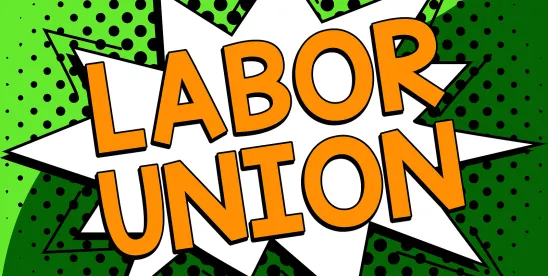The National Labor Relations Board continued its efforts to facilitate union organizing and upended significant aspects of prior precedent by: (1) making it easier for unions to circumvent the Board’s election procedures through a demand for recognition; and (2) issuing a Final Rule amending (and expediting) those election procedures.
The Board in the past has recognized the importance of “ensuring that all employees are fully informed about the arguments concerning representation and can freely and fully exercise their [legal] rights.” The effect of the latest changes will make this more difficult. It is important for employers to prepare now to protect their rights, and the rights of their employees, when responding to union organizing.
1. The Board Announced a New Framework for When Employers Must Recognize a Union Without an Election
In a decision that the dissent described as departing from long-standing precedent and making dramatic changes in Board law, the Board made it easier for unions to organize workplaces without an election. 372 NLRB No. 130 (Aug. 25, 2023).
Under the new framework, if a union demands recognition based upon claimed support from a majority of employees (generally, using signed cards), an employer that refuses to recognize the union will violate the National Labor Relations Act, unless the employer “promptly” files a petition with the Board requesting an election “to test the union’s majority status or the appropriateness of the unit.”
However, if the employer commits an unfair labor practice that would require the election to be set aside, the Board will dismiss the petition without an election and “order the employer to recognize and bargain with the union.” The Board acknowledged that the unfair labor practice that would require the election to be set aside could be a single violation of the Act.
As the dissent noted, the mere existence of an unlawful work rule in a handbook – even if there is no evidence that employees were aware of it – has been sufficient for the Board to require the results of an election to be set aside. The dissent concluded that the Board’s decision “will predictably result in many more card-based bargaining orders and far fewer representation elections.”
The new framework will be applied retroactively. Because the maintenance of a rule that is later deemed unlawful, or an errant remark from a supervisor, could result in the dismissal of the employer’s request for an election and the issuance of an order to bargain with the union, management training is more critical now than ever.
2. The Board Issued a Final Rule Returning to 2014 Election Rules
The Board announced a Final Rule amending its representation election procedures. The Final Rule, which was published in the Federal Register on August 25, 2023, returns to rules that were first adopted in 2014, but rescinded by the prior Board in 2019. The prior Board aimed to relieve many of the 2014 “quickie election rule” burdens faced by employers. This Board brings them back.
The August 25 amendments reestablish tight timelines on hearing dates and elections, which shorten the amount of time employers have to respond to union election petitions. Under these rules, pre-election litigation is limited to specific issues and, when there is a hearing, it will happen more quickly, post-hearing briefing will be limited, a decision will be issued, and the election held as quickly as possible after a petition is filed.
As a result, questions such as “Is my job classification eligible to vote?” and “Which other employees in our company will be in my bargaining unit?” and “Which of our employees are ‘supervisors’?” may be left unanswered when employees vote. This creates uncertainty for employees who must vote on whether they wish to be represented by a union in a bargaining unit whose composition may not be fully defined.
Moreover, supervisors are ineligible to vote and are representatives of management under the Act, which means that the employer is legally bound by their conduct. Supervisory status is a nuanced and fact-sensitive area of the law. In many cases, the parties can safely rely only on a formal determination by the Board. However, the new rules will defer resolution of the issue, putting employers in the difficult position of responding to a union petition without knowing for certain which of their employees are supervisors. This is particularly problematic under the Board’s August 25 decision holding that even a single improper statement by a supervisor could result in the issuance of an order to bargain with the union without an election.
The dissent commented that the Board, in returning to the 2014 rule, “unquestionably values quick elections over fully informed voters.” Barring subsequent agency action or judicial intervention, however, the Final Rule goes into effect December 26, 2023.
Implications
The Board’s August 25 decision makes it far more likely that employees may never have the chance to vote in a secret ballot Board election. When there is an election, the Board’s focus on the “prompt resolution” of election matters will often be at the cost of employee informed choice.
It is critical that employers take immediate steps to prepare to respond quickly and effectively by training their management team on legal rights and responsibilities, preparing to litigate on extraordinarily short notice bargaining unit and supervisory issues, and preparing to communicate with employees lawfully and effectively about the arguments concerning representation and to respond to their questions.








 />i
/>i
